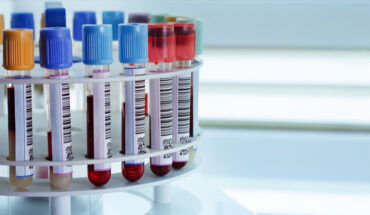4 effective approaches to treating addiction: As you might have come across from multiple sources, alcohol, and drug addiction is a huge problem in society – and in many parts of the globe, so to speak. As far as substance dependence is concerned, a recent, 2019 report from IHME, Global Burden of Disease showed that alcohol disorders had the highest death toll (direct and indirect) worldwide, followed by illicit drugs and opioids.
But we can’t run away from the fact that addiction is a “disease”, more specifically known as substance use disorder. This is why it requires treatment by a medical professional, whose approach basically depends on the kind of addiction, the substance in question, and the level of severity.
How to Design a Substance Use Disorder Treatment Program
If you’re considering a career in mental health, your journey might lead to one or several of many things. You could end up being responsible for providing treatment or care to addiction patients, including alcohol addicts and those hooked to hard drugs.
In this case, having access to a reliable substance use treatment database can help you to curate the most effective treatment plan for your patient, track their progress, and even coordinate therapies and milestones with other health providers.
With this in mind, let’s look at a few major approaches used by health practitioners to effectively treat alcohol and drug addiction.
Commonly Used Approaches For Alcohol and Drug Addiction Treatment
1. Detox Medications and Rehab
There are many types and levels of addiction treatment for alcohol addiction or substance dependence. Whether the person is admitted or undergoes an outpatient rehab, detox medications are often essential for their recovery. Medicated detox helps to decrease physical cravings for the substance, reduce withdrawal symptoms, and help with any remaining effects of intoxication.
This is combined with rehab programs that provide support, such as counseling and group therapy sessions to assist in achieving sobriety. These are often combined with other approaches, such as social support and holistic treatment.
2. Mental Health Therapies to Support Addiction Recovery
Mental health therapies such as Cognitive Behavioral Therapy (CBT) can be extremely beneficial during substance abuse recovery. CBT promotes healthier thinking to address the underlying triggers of addiction and alcoholism, ultimately creating more positive coping skills and behaviors.
Other therapeutic approaches, such as Motivational Interviewing or Dialectical Behavior Therapy, can also provide the patient with insight into their behavior and help them identify why they are struggling with substance use in the first place.
Considering that substance abuse has both physical and mental repercussions, it makes perfect sense to treat the whole person, using psychological therapy to foster lasting change.
3. Holistic Approaches for Treating Substance Abuse
Although primarily focused on supporting mental health, there are also holistic approaches that can be used to treat drug and alcohol addiction. These include yoga and mindfulness for stress relief or acupuncture for pain management. Activities like art and music therapy can also provide a sense of calm and help distract the individual from substance cravings.
In line with this, proper nutrition is incredibly important during recovery. It helps the victim combat any nutritional damages that might have been caused by long-term drug or alcohol use, as well as deficiencies that may stem from withdrawal.
4. The Role of Social Support in Addiction Recovery
Last but not least, social support is essential for helping individuals to successfully manage and recover from substance use disorder. Peers, friends, family members, and even professional counselors can provide guidance, understanding, and emotional support during addiction recovery.
Moreover, social groups can serve as a great source of encouragement by connecting others in recovery from similar backgrounds or circumstances. These networks not only raise awareness about the dangers of drugs and alcohol – but they also enable people struggling with substance abuse to see that they are not alone.
Better yet, having a reliable social support system can inspire hope and increase the chance of success in preventing addiction relapse.
In conclusion, substance abuse is a physical and psychological illness that requires comprehensive treatment through multiple forms of care. From mental health therapies to holistic methods such as yoga or nutrition, the most effective approaches seek to address both the body and mind and can help the patient in achieving long-term recovery from alcohol or drug addiction.
- Gut microbiome could delay onset of type 1 diabetes - 3rd April 2025
- The da Vinci 5 Robot Is Set To Transform Bariatric Care: - 31st March 2025
- Beyond money: the hidden drivers fuelling child food insecurity - 31st March 2025






